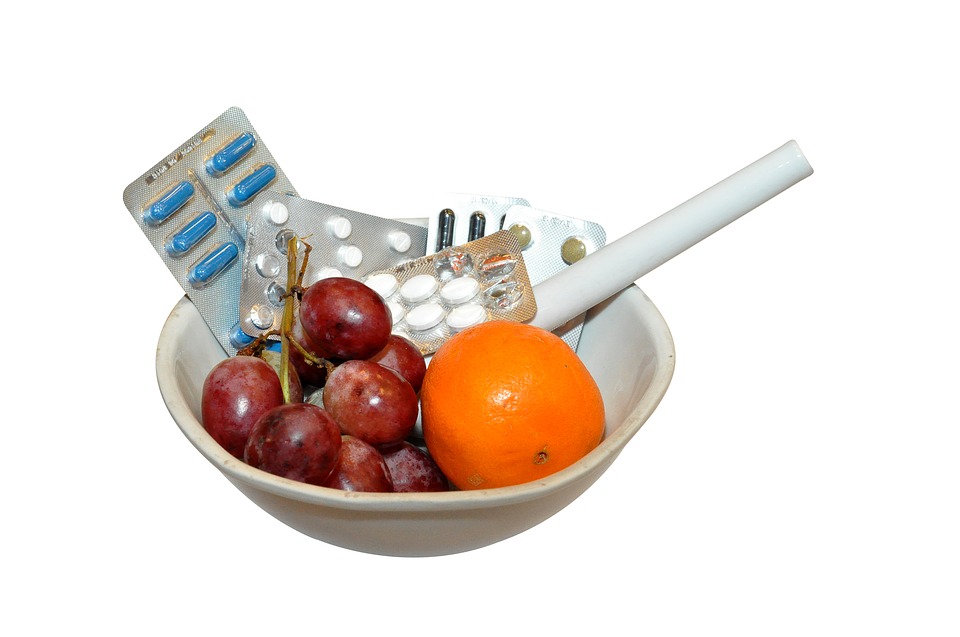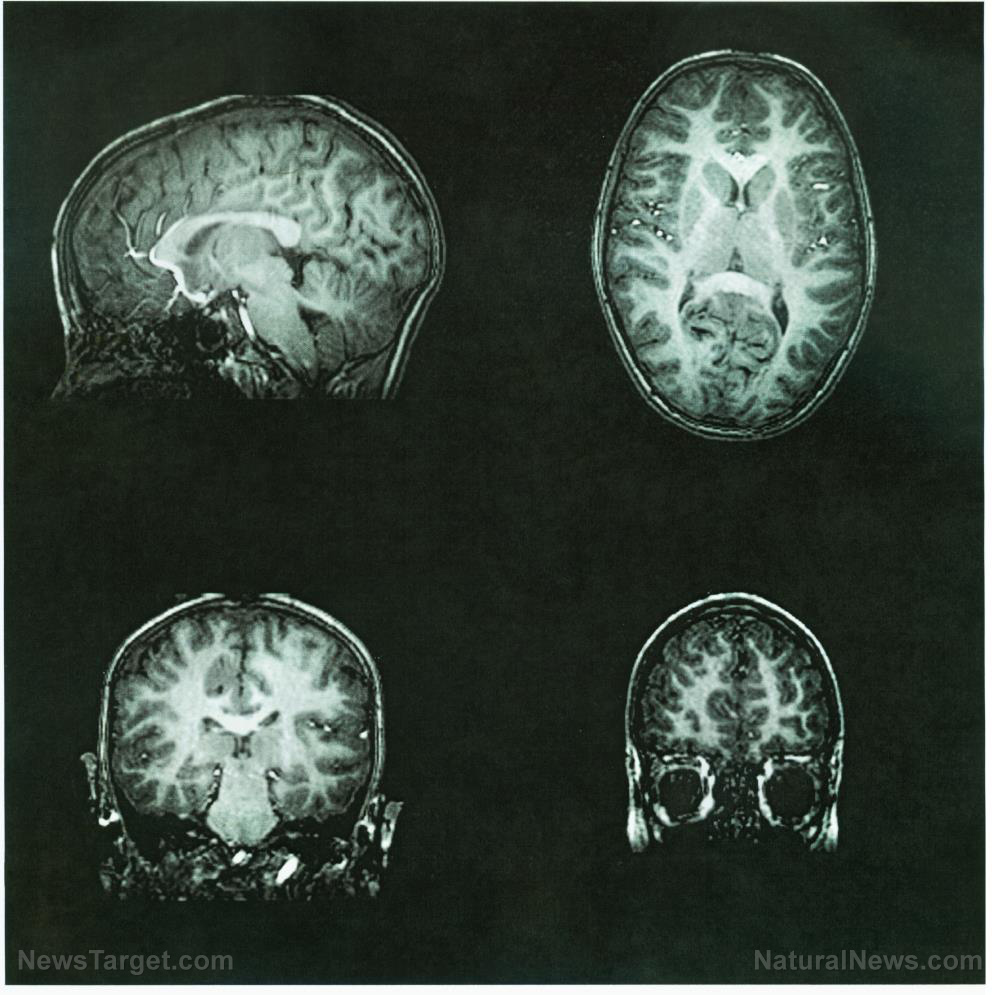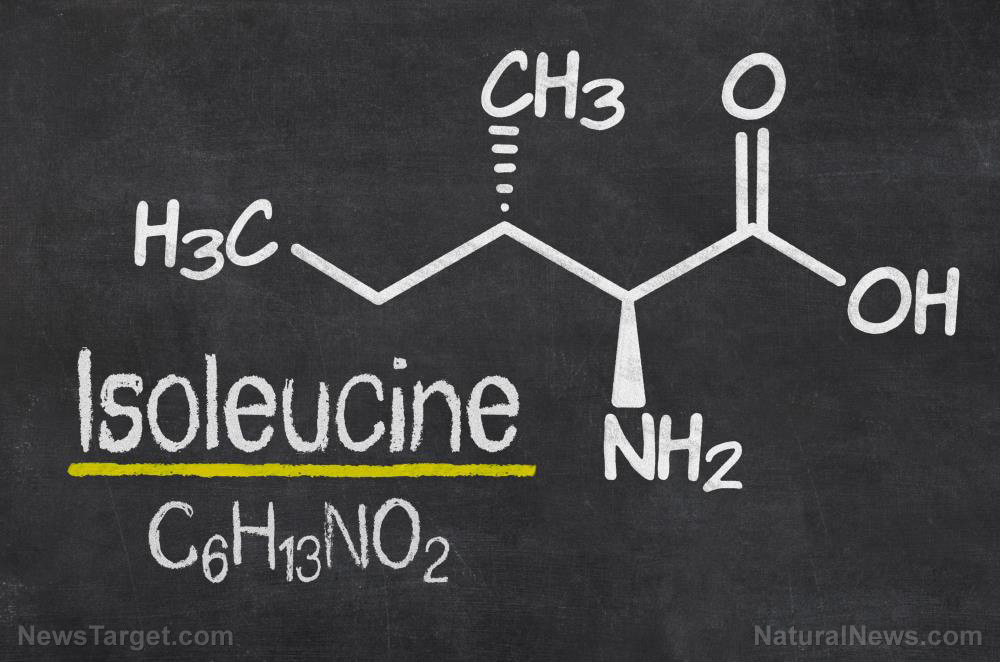25 top sports supplements
09/08/2016 / By supplementsreport

People are continually searching for supplements to help them build muscle, boost energy and lose weight. The following is an overview of 25 popular sports supplements.
Article by Jeff. S Volek
PROTEIN
Protein is the most imporant nutrient you need to boost athletic performance. If you exercise regularly, you need a bit more protein than if you’re sedentary. There are many excellent sources of protein, and each has specific pros and cons.
Whey Protein
Muscle-building, dieting, immunity
Whey is 20% of the protein in milk, consisting of several complex peptides (ß-lactoglobulin, a-lactalbumin, glycomacro-peptide, etc.). It contains all the essential amino acids, and is especially rich in essential amino acids, BCAAs, leucine (10-14g per 100g of protein), and cysteine (3-fold higher levels than casein).
Digestion Rate: Rapid — due to water solubility of protein at a low pH.
Timing/Dose: Consume 10-30g at least 30 minutes pre-workout. Consume 10-30g immediately post-workout.
Ideal Use: Its high levels of BCAAs and fast digestion rate supports the development of lean body mass. Whey is ideal for pre- and post-workout, or between meals. High leucine levels provide an efficient anabolic stimulus with fewer calories, so it’s ideal for dieters. High cysteine levels boost glutathione production and antioxidant capacity. It supports a healthy immune system, and it promotes satiety, making it ideal for curbing hunger and assisting in weight loss.Casein Protein
Long-lasting protein
Casein is the principal protein found in cow’s milk (80% of total protein). It contains all the essential amino acids, and is especially rich in tyrosine and proline.Digestion Rate: Slow — due to formation of micelles (cluster of casein molecules) in the stomach at a low pH.
Timing/Dose: Not advised to take pre-workout since it stays in the stomach. Consume 10-30g within 1 hour post-workout.
Ideal Use: Extended anabolic effects make it ideal when frequent protein ingestion is not possible or meals are skipped. Its slow amino acid release makes it ideal before bed. Casein provides long-lasting protein and is usually found in meal replacements, so it’s ideal if you only eat one or two actual meals per day.
Egg White Protein
Dairy-free, high-quality protein
Egg whites contain over 40 proteins — the most prominent being albumen. Yolks also have some protein, but whole egg powders are less common than egg white. Both contain all the essential amino acids.
Digestion Rate: Medium-fast — due to the increase in plasma essential amino acids, but lagging slightly behind whey, peaking between 45-60 minutes after ingestion.
Timing/Dose: Consume 10-30g at least 45 minutes pre-workout. Consume 10-30g immediately post-workout.
Ideal Use: Excellent choice for those who are lactose intolerant or allergic to milk or soy protein. Egg white protein provides many of the same benefits of whey, so it makes for a great alternative. It’s also a good choice if you don’t want to prepare or like the taste of whole eggs.
Soy Protein
Vegetarian source of protein
Soy protein contains all the essential amino acids including twice the arginine and glutamine of milk-based proteins.
Digestion Rate: Intermediate — between whey and casein.
Timing/Dose: Consume 10-30g at least 45 minutes pre-workout. Consume 10-30g immediately post-workout.
Ideal Use: Soy is the highest quality plant-derived protein source, so it’s ideal for vegetarians. Some research supports a positive impact on cardiovascular health and bone health. High arginine promotes nitric oxide production and healthy vascular function, and high glutamine supports a healthy immune system. It’s an excellent choice for those allergic to milk or egg proteins.
AMINO ACIDS
Amino acids are important for bodybuilders and strength trainers since they support protein synthesis and muscle building. There are many free-form amino acids, which can be used singly or in combination with other amino acids.
BCAAs / Leucine
Reduce muscle soreness
The branched-chain amino acids (BCAAs), leucine, isoleucine and valine, are unique because they are the only amino acids used directly by muscle as energy during exercise. Thus, they can become depleted quickly. Leucine also acts more like a hormone in that it activates muscle protein synthesis directly. One recent study showed that compared to placebo, daily intake of 20g of BCAAs (10g in the morning and evening) for one week prior to a damaging bout of exercise decreased muscle soreness by 30%, decreased markers of muscle damage by 22%, and improved muscle performance during recovery. 1
Timing/Dose: Studies indicate that consuming at least 2.5g of leucine per meal 4 times per day promotes greater weight loss, greater fat loss and better preservation of lean body mass. In these studies, the high leucine diets also resulted in better glucose control. 2
Ideal Use: BCAA powders are convenient to add to a pre-workout shake. They can also be taken alone if you don’t want to digest a full shake, allowing for something lighter on your stomach when working out.
Protein (Amino Acid) Tablets
Convenient protein
Amino acid tablets are usually derived from quality sources of protein like whey and contain approximately 1g of protein per tablet. They are a convenient way to meet your protein requirements without having to worry about mixing a shake or preparing a meal.
Glutamine
For workout recovery
Glutamine is an amino acid, and it accounts for more than 60% of the free amino acids in muscle. Catabolic states (when muscle is being torn down), like during high-intensity workouts, are associated with reductions in muscle glutamine. Several clinical studies indicate that glutamine supplementation by catabolic patients improve nitrogen balance and recovery. Immune cells use glutamine as an energy source, and studies support glutamine as an immune enhancer. It’s also been shown to enhance glycogen levels.
In one recent study, researchers infused a chemical that caused inflammation and reduced muscle force production by approximately 33%. When the same chemical was infused together with glutamine, force production was completely restored to normal. This reinforces the critical role of maintaining adequate glutamine levels not just for immune function and nitrogen balance, but also for preserving acute force production capabilities. 3
Timing/Dose: One problem with taking glutamine is that it has trouble getting absorbed because the intestinal cells use it as energy source. Thus, 2-5g of glutamine per day are required.
Taurine
Important for metabolism function
Taurine is an amino acid that’s included in many pre-workout formulas (made famous being featured in Red Bull). It’s abundant in skeletal muscle and is claimed to help increase cell volume. There is little confirmation to support that claim, but there is evidence that taurine may increase insulin sensitivity and decrease oxidative stress.
Dose: Doses greater than 1g are likely needed to have any impact on cell function.
PERFORMANCE ENHANCERS
Improve performance, get stronger faster and decrease muscle breakdown.
Creatine
Increase power and strength
Creatine is a supplement you should definitely consider if you are a serious athlete who wants to ensure maximum intensity workouts and optimal gains in muscle size and strength.
Creatine supplementation works by increasing the creatine content of skeletal muscles, which in turn extends the time muscles can exert maximal power. This is beneficial for just about any athlete because it translates into performing more reps in the weight room, sprinting faster, jumping higher, throwing harder, etc. Numerous studies have also reported that creatine supplementation augments muscle size and strength gains to resistance training.
Dose: When first using creatine, it’s best to take 15-25g per day for 5 days. After this loading period, 3-5g per day is recommended for a maintenance dose.
Beta-Alanine
Reduce acid build-up and fatigue
New research shows athletes undergoing intense, anaerobic exercise can blunt the effects of acid build-up in the muscles by supplementing with beta-alanine, which causes muscles to accumulate carnosine. According to several studies, higher muscle carnosine levels decrease fatigue and increase the total work capacity.
When beta-alanine (3.2g) is used along with creatine (10.5g) during 10 weeks of resistance training, there may be an additive effect producing better gains in lean body mass than with either supplement alone. 1
Dose: The largest increases in muscle carnosine have been observed with a dose of 6.4g per day, but increases can also be achieved with amounts as low as 3.2g per day. Results occur after about 4 weeks of use.
D-Ribose
Fuel energy for high intensity workouts
D-ribose is a precursor for ATP (energy) synthesis. ATP fuels all body functions, including muscle contraction. Thus, the assumption is that ribose supplementation can either prevent ATP loss or speed the re-synthesis of ATP during recovery.
Some studies have provided evidence that ribose supplementation can enhance ATP levels and performance during consecutive days of very high-intensity exercise. Thus, ribose may be useful for athletes during very high volume and intensity periods of training.
Dose: 5-10g per day.
HMB
Decreases muscle breakdown
HMB, a metabolite of leucine, has been shown to decrease muscle damage and have anti-catabolic effects that could translate into greater gains in lean body mass and muscular adaptations to resistance training.
We recently tested the effects of a supplement containing 1.5g of HMB and a blend of amino acids on adaptations to 12 weeks of heavy resistance training.2 The HMB-amino acid group had significantly greater increases in lean body mass (10 pounds more than the control group) and measures of muscle strength.
Dose: Between 1.5-3g per day.
NITRIC OXIDE
There are a variety of pre-exercise nitric oxide formulas that claim to promote vasodilation and better muscle pumps during exercise. Most contain the amino acid arginine which is involved in the synthesis of nitric oxide. Nitric oxide is a substance that is made and released by the cells that line your blood vessels. When released, NO causes a potent dilation of blood vessels, which translates into increased blood flow. Some studies have shown better blood vessel function after arginine supplementation in people with impaired vascular function, but positive effects in young healthy athletes are less clear. High doses are required to impact NO, probably above 3 grams.
Other common ingredients claimed to augment vasodilation include Arginine AKG, Arginine Nitrate, Agmatin, L-Citrulline, L-Norvalline, and L-Tyrosine.
Dose: high doses are required to impact NO, probably above 3 grams.
Arginine
For nitric oxide and growth hormone
Arginine is classified as a non-essential amino acid since our bodies can produce it. But, because it becomes limiting in many circumstances, it’s usually referred to as conditionally dispensable. Arginine is the rate limiting amino acid in the synthesis of NO. Increasing the bioavailability of NO improves dilation of blood vessels and reduces blood pressure. Emerging evidence suggests exercise efficiency and performance may benefit as well.For nitric oxide and growth hormoneArginine is classified as a non-essential amino acid since our bodies can produce it. But, because it becomes limiting in many circumstances, it’s usually referred to as conditionally dispensable. Arginine is the rate limiting amino acid in the synthesis of NO. Increasing the bioavailability of NO improves dilation of blood vessels and reduces blood pressure. Emerging evidence suggests exercise efficiency and performance may benefit as well. In one study, healthy men who consumed 6g of arginine reduced the amount of oxygen required (i.e., increased efficiency) to perform exercise, and increased time to exhaustion by 26% during high intensity cycling. 4 Some studies have shown better blood vessel function in people with impaired vascular function after arginine supplementation, but positive effects in young healthy athletes are less clear.
In another study, a combination formula consisting of arginine (7g), HMB (1.5g), glutamine (7g) plus taurine (3g) resulted in striking improvements in body composition.8 Compared to a control group who received a placebo, healthy young men who supplemented with the arginine combo formula during 12 weeks of heavy resistance training showed a 10-pound greater increase in lean body mass.
Dose: High doses are required to impact NO, probably above 3g. Arginine infusion is used clinically as a diagnostic test when growth hormone (GH) deficiency is suspected. The dose of oral arginine needed to increase GH levels appears to be at least 5g, with larger responses shown with 9g. 5-7
TESTOSTERONE SUPPORT
Testosterone benefits cardiovascular health, mood, energy, immune function, cognitive function and protects against osteoporosis.
Tribulus
Works via luteinizing hormone
Several hormones stimulate the body’s own production of testosterone. The most important and potent stimulator of testosterone secretion is luteinizing hormone (LH), which is secreted from the pituitary gland. Tribulus terrestris is reported to increase testosterone levels by increasing LH levels. This mechanism of testosterone release by tribulus is due to the natural presence of biologically active saponins, especially protodioscin.
Dose: Look for products that are standardized to a high content of protodioscin (minimum 20%).
ZMA
Zinc and magnesium aspartate
ZMA is a combination of two essential minerals, zinc and magnesium, as well as vitamin B6. These micronutrients are involved in countless metabolic reactions in the body, including the body’s use of energy and its production of hormones and other vital tissues. Zinc and magnesium levels are notoriously low in the American diet. Athletes are at even more risk of developing mineral deficiencies due to loss through urine and sweat, increased metabolism and stress caused by strenuous exercise. Among many functions, zinc is involved in normal production of testosterone. In fact, studies have shown that even small deficiencies in zinc can lead to reductions in testosterone. Supplementing with zinc may bring levels back to normal.
Magnesium is even more of a concern than zinc for many athletes, especially if you either sweat a lot, eat a highly refined diet, consume alcohol, or take diuretics — which all promote loss of magnesium from the body. Even a moderate depletion in magnesium can adversely affect nerve transmission, leading to disturbances in the normal way skeletal and heart muscles contract. For example, common manifestations of magnesium depletion include muscle cramps and heart palpations. It’s also hard to diagnose magnesium status with a simple blood test because cells will become depleted long before blood levels go down. The good news is that a couple weeks of magnesium supplementation often corrects these problems.
Dose: The clinicially studied ZMA dose was 30 mg of zinc and 450 mg of magnesium, taken before bed.
D-Aspartic Acid
Amino acid supports testosterone
D-aspartic acid is a non-essential amino acid that plays a role in energy metabolism and testosterone levels. In one study, healthy men who supplemented with 3g of D-aspartic acid for 12 days showed a gradual increase in testosterone of 16% after 6 days and 42% at 12 days. There was also a 33% increase in luteinizing hormone after 12 days. 3
Dose: About 3g per day.
L-Carnitine
Increases androgen receptors; burn fat
Testosterone binds to muscle via androgen receptors, which is necessary in order for testosterone to elicit its anabolic effects. My lab showed that supplementation with L-carnitine (L-tartrate form) increased the amount of androgen receptors in skeletal muscle. 4 In addition, L-carnitine has long been known as the “fat burning” supplement because it helps transport fat into the mitochondria to be burned.
In two separate studies, supplementation of L-carnitine (3g per day) for 10 days resulted in significantly higher rates of fat oxidation. 5-6 This work was recently validated by yet another study that showed endurance-trained men who supplemented with 2g of L-carnitine burned more fat and spared muscle glycogen during exercise. 7
Several lines of evidence support a role of carnitine in other processes beyond muscle fat burning. Much of this work has been done over the last decade in my laboratory at the University of Connecticut. We have shown that carnitine supplementation improves recovery from exercise by acting as an antioxidant and vasodilator that reduces muscle damage and markers of stress after exercise. 8-10
Dose: 1-2g per day.
FAT BURNERS
Dieting and exercise are fundamental to losing weight. But if you want to burn more fat and lose weight faster, one of these ingredients might be right for you.
Green Tea Extract
Burn fat, increase lean muscle ratio
A large body of work exists supporting positive effects of green tea on a wide range of biological effects that improve health and weight management. Most research has focused on EGCG as the predominant active ingredient responsible for green tea’s thermogenic and fat burning effects.
In one of the first experiments, it was shown that green tea extract containing 150 mg of caffeine and 270 mg EGCG increased 24-hour metabolic rate by 80 kcal per day and caused a shift to greater fat oxidation.1 Green tea has been shown to work by increasing cellular levels of cyclic AMP (cAMP), which in turn increases metabolic rate and breakdown of fat in cells. In one long-term study, 12 weeks of green tea supplementation (containing 690 mg catechins per day) resulted in a two-fold greater weight loss (-2.4 vs -1.3 kg) and fat loss (-1.4 vs -0.7 kg) compared to placebo.2 Additionally, compared to placebo, green tea had a four-fold greater effect on reductions in subcutaneous and visceral fat in the abdomen.
Dose: Take enough green tea extract to provide at least 270 mg of EGCG per day.
Raspberry Ketones
Promotes fat breakdown
Raspberry ketones are aromatic compounds that chemically resemble capsaicin, the “hot” substance in red peppers. Studies on capsaicin indicate it promotes thermogenesis in a dose response manner by increasing epinephrine secretion, indicating it works by enhancing sympathetic nervous system activity. In humans, several studies have reported that capsaicin acutely increases energy expenditure, reduces food intake, enhances fat oxidation and decreases body fat. 3 In animal experiments raspberry ketones have proven effective in preventing obesity in response to a high calorie diet. 4 Raspberry ketones specifically promoted increased norepinephrine-induced fat breakdown, enhanced thermogenesis, and inhibited absorption of dietary fat. Together these effects contributed to a profound reduction in whole body fat as well as fat in visceral adipose tissue and the liver.
Dose: Human studies are lacking, but likely at least 100 mg per day.
Caffeine
Makes exercise feel easier
Pre-workout formulas almost always contain caffeine. Caffeine is a central nervous stimulant and is largely responsible for making you feel alert and making intense exercise feel easier. Caffeine will also mildly elevate fat burning and metabolic rate.Studies indicate mild caffeine consumption is not only safe but may actually decrease risk for diabetes.
Dose: Research indicates 200 to 600 mg delivers an optimal dose.
CLA
Reduces body fat
Positive studies in animals suggesting that a special type of fat called conjugated linoleic acid (CLA) was associated with reduced body fat levels inspired a large number of researchers to test the effects in people. Subsequent human studies have shown positive effects. In one study, women who supplemented with CLA (4.2g per day) for 16 weeks had 4% lower total fat mass and 7% lower fat in the lower body compared to placebo. 11 In a separate study, women who supplemented with CLA (6.4g per day) for 16 weeks showed greater weight loss and fat loss compared to the placebo group. 12
Dose: Studies indicate doses of 1.8g, 2.25g, 3.2g, 4.2g and 6.4g per day are effective at decreasing fat mass, with better response at the higher doses.
Green Coffee Bean Extract
Blunts glucose so more fat is burned
Both green coffee extract and its major phenolic compound, chlorogenic acid, have shown thermogenic fat-burning effects as well as other health promoting actions. In a recent lab study, green coffee extract prevented weight gain and fat accumulation in mice. 13 The effect is likely due to a combination of the caffeine, chlorogenic acid and other polyphenolic compounds with antioxidant activities found in green coffee extract. Chlorogenic acid appears to target fat stores in the liver. It contains ferulic acid, which has been shown to stimulate nitric oxide bioavailability and have a positive effect on vascular dilation and blood pressure. 14-15
OMEGA-3s / EPA & DHA
Fish Oil
Decreases muscle soreness
Fish oil is rich in omega-3 fats (EPA and DHA), which have received enormous attention over the last few decades, owing to a myriad of health benefits associated with their intake. Most Americans eat significantly more omega-6 fats relative to omega-3s, and this imbalance may set them up for greater inflammation and health problems. In addition to promoting general health, omega-3 fats are important for athletes. Studies show that increasing omega-3 levels enhances insulin sensitivity and slows muscle loss. 16 Omega-3 fats have also been shown to augment blood flow to muscles during exercise. 17Moreover, omega-3s in combination with exercise was recently shown to maximize fat loss and decrease muscle soreness and swelling after damaging exercise. 18-19
Dose: The minimum starting dose is a total of 500 mg of EPA and DHA per day, which is equivalent to about one serving of fatty fish every other day. A more optimal dose for most people may be closer to 1g per day of EPA and DHA. If you are at high risk of heart disease, stroke or inflammatory condition, then 2g per day may result in better effects.
MY FAVORITES
For protein — whey is my favorite, although other choices work well, too. If you lift weights, creatine is my next favorite supplement for building muscle. If you have trouble finding energy to hit the gym, try a pre-workout formula for an added boost. L-glutamine is ideal for recovery. Take a fat burner — green tea extract and L-carnitine are my top choices — to increase your lean mass ratio. And consider taking a fish oil supplement (if you don’t regularly consume fatty fish for its omega-3 content) to slow muscle loss, maximize fat loss, augment blood flow to muscles during exercise and decrease muscle soreness after exercise.
Protein and Amino Acid References
1. Howatson G, Hoad M, Goodall S, Tallent J, Bell PG, French DN. Exercise-induced muscle damage is reduced in resistance-trained males by branched chain amino acids: a randomized, double-blind, placebo controlled study. J Int Soc Sports Nutr. 2012 May 8;9(1):20.
2. Zhang Y, Guo K, LeBlanc RE, Loh D, Schwartz GJ, Yu YH. Increasing dietary leucine intake reduces diet-induced obesity and improves glucose and cholesterol metabolism in mice via multimechanisms. Diabetes. 2007 Jun;56(6):1647-54. Epub 2007 Mar 14.
3. Meador BM, Huey KA. Glutamine preserves skeletal muscle force during an inflammatory insult. Muscle Nerve. 2009 Aug 24. [Epub ahead of print]
4. Bailey SJ, Winyard PG, Vanhatalo A, Blackwell JR, Dimenna FJ, Wilkerson DP, Jones AM. Acute L-arginine supplementation reduces the O2 cost of moderate-intensity exercise and enhances high-intensity exercise tolerance. J Appl Physiol. 2010 Aug 19.
5. van Vught AJ, Nieuwenhuizen AG, Brummer RJ, Westerterp-Plantenga MS. Effects of oral ingestion of amino acids and proteins on the somatotropic axis. J Clin Endocrinol Metab. 2008 Feb;93(2):584-90.
6. Collier SR, Casey DP, Kanaley JA. Growth hormone responses to varying doses of oral arginine. Growth Horm IGF Res. 2005 Apr;15(2):136-9. Epub 2005 Jan 26.
7. Collier SR, Collins E, Kanaley JA. Oral arginine attenuates the growth hormone response to resistance exercise. J Appl Physiol. 2006 Sep;101(3):848-52.
8. Kraemer WJ, Hatfield DL, Volek JS, Fragala MS, Vingren JL, Anderson JM, Spiering BA, Thomas GA, Ho JY, Quann EE, Izquierdo M, Häkkinen K, Maresh CM. Effects of Amino Acids Supplement on Physiological Adaptations to Resistance Training. Med Sci Sports Exerc. 2009 Apr 3. [Epub ahead of print]
Performance Enhancers and Testosterone Support References
1. Hoffman J, Ratamess N, Kang J, Mangine G, Faigenbaum A, Stout J. Effect of creatine and beta-alanine supplementation on performance and endocrine responses in strength/power athletes. Int J Sport Nutr Exerc Metab. 2006 Aug;16(4):430-46.
2. Kraemer WJ, Hatfield DL, Volek JS, Fragala MS, Vingren JL, Anderson JM, Spiering BA, Thomas GA, Ho JY, Quann EE, Izquierdo M, Häkkinen K, Maresh CM. Effects of Amino Acids Supplement on Physiological Adaptations to Resistance Training. Med Sci Sports Exerc. 2009 Apr 3. [Epub ahead of print]
3. Topo E, Soricelli A, D’Aniello A, Ronsini S, D’Aniello G. The role and molecular mechanism of D-aspartic acid in the release and synthesis of LH and testosterone in humans and rats. Reprod Biol Endocrinol. 2009 Oct 27;7:120.
4. Kraemer WJ, Spiering BA, Volek JS, Ratamess NA, Sharman MJ, Rubin MR, French DN, Silvestre R, Hatfield DL, Van Heest JL, Vingren JL, Judelson DA, Deschenes MR, Maresh CM. Androgenic responses to resistance exercise: effects of feeding and L-carnitine. Med Sci Sports Exerc. 2006 Jul;38(7):1288-96.
Fat Burners and Omega-3s References
1 . Dulloo AG, Duret C, Rohrer D, Girardier L, Mensi N, Fathi M, Chantre P, Vandermander J. Efficacy of a green tea extract rich in catechin polyphenols and caffeine in increasing 24-h energy expenditure and fat oxidation in humans. Am J Clin Nutr. 1999 Dec;70(6):1040-5.
2. Nagao T, Hase T, Tokimitsu I. A green tea extract high in catechins reduces body fat and cardiovascular risks in humans. Obesity (Silver Spring). 2007 Jun;15(6):1473-83.
3. 24. Diepvens, K., Westerterp, K. R. & Westerterp-Plantenga, M. S. (2007) Obesity and thermogenesis related to the consumption of caffeine, ephedrine, capsaicin, and green tea. Am J Physiol Regul Integr Comp Physiol 292: R77-85.
4. 25. Morimoto, C., Satoh, Y., Hara, M., Inoue, S., Tsujita, T. & Okuda, H. (2005) Anti-obese action of raspberry ketone. Life Sci 77: 194-204.
5. Wutzke KD, Lorenz H. The effect of l-carnitine on fat oxidation, protein turnover, and body composition in slightly overweight subjects. Metabolism. 2004 Aug;53(8):1002-6.
6. Müller DM, Seim H, Kiess W, Löster H, Richter T. Effects of oral L-carnitine supplementation on in vivo long-chain fatty acid oxidation in healthy adults. Metabolism. 2002 Nov;51(11):1389-91.
7. Wall BT, Stephens FB, Constantin-Teodosiu D, Marimuthu K, Macdonald IA, Greenhaff PL. Chronic oral ingestion of L-carnitine and carbohydrate increases muscle carnitine content and alters muscle fuel metabolism during exercise in humans: the dual role of muscle carnitine in exercise metabolism. J Physiol. 2011 Jan 4.
8. Volek, J. S., Kraemer, W. J., Rubin, M. R., Gomez, A. L., Ratamess, N. A. & Gaynor, P. L-Carnitine L-tartrate supplementation favorably affects markers of recovery from exercise stress. Am J Physiol Endocrinol Metab. (2002); 282:E474-482.
9. Spiering, B. A., Kraemer, W. J., Vingren, J. L., Hatfield, D. L., Fragala, M. S., Ho, J. Y., Maresh, C. M., Anderson, J. M. & Volek, J. S. Responses of criterion variables to different supplemental doses of L-carnitine L-tartrate. J Strength Cond Res. (2007); 21:259-264.
10. Ho JY, Kraemer WJ, Volek JS, Fragala MS, Thomas GA, Dunn-Lewis C, Coday M, Häkkinen K, Maresh CM. l-Carnitine l-tartrate supplementation favorably affects biochemical markers of recovery from physical exertion in middle-aged men and women. Metabolism. 2010 Aug;59(8):1190-9.
11. Raff M, Tholstrup T, Toubro S, Bruun JM, Lund P, Straarup EM, Christensen R, Sandberg MB, Mandrup S. Conjugated linoleic acids reduce body fat in healthy postmenopausal women. J Nutr. 2009 Jul;139(7):1347-52. Epub 2009 Jun 3.
12. Norris LE, Collene AL, Asp ML, Hsu JC, Liu LF, Richardson JR, Li D, Bell D, Osei K, Jackson RD, Belury MA. Comparison of dietary conjugated linoleic acid with safflower oil on body composition in obese postmenopausal women with type 2 diabetes mellitus. Am J Clin Nutr. 2009 Jun 17. [Epub ahead of print]
13. 31. Shimoda, H., Seki, E. & Aitani, M. (2006) Inhibitory effect of green coffee bean extract on fat accumulation and body weight gain in mice. BMC Complement Altern Med 6: 9.
14. 32. Suzuki, A., Yamamoto, M., Jokura, H., Fujii, A., Tokimitsu, I., Hase, T. & Saito, I. (2007) Ferulic acid restores endothelium-dependent vasodilation in aortas of spontaneously hypertensive rats. Am J Hypertens 20: 508-513.
15. 33. Ochiai, R., Jokura, H., Suzuki, A., Tokimitsu, I., Ohishi, M., Komai, N., Rakugi, H. & Ogihara, T. (2004) Green coffee bean extract improves human vasoreactivity. Hypertens Res 27: 731-737.
16. Watkins BA, et al. Dietary supplementation with n-3 PUFA attenuated musculoskeletal atrophy associated with disuse. Federation of American Societies for Experimental Biology, Washington D.C., April, 2004. Abstract #610.4.
17. Walser B, Giordano RM, Stebbins CL. Dietary supplementation with DHA and EPA augments skeletal muscle blood flow during rhythmic contraction. Federation of American Societies for Experimental Biology, #688.8, San Diego, CA, April, 2005.
18. Hill AM, Buckley JD, Murphy KJ, Howe PR. Combining fish-oil supplements with regular aerobic exercise improves body composition and cardiovascular disease risk factors. Am J Clin Nutr. 2007 May;85(5):1267-74.
19. Tartibian B, Maleki BH, Abbasi A. The effects of ingestion of omega-3 fatty acids on perceived pain and external symptoms of delayed onset muscle soreness in untrained men. Clin J Sport Med. 2009 Mar;19(2):115-9
Read more at: nutritionexpress.com
Tagged Under: nutrients, sports, supplements, vitamins




















